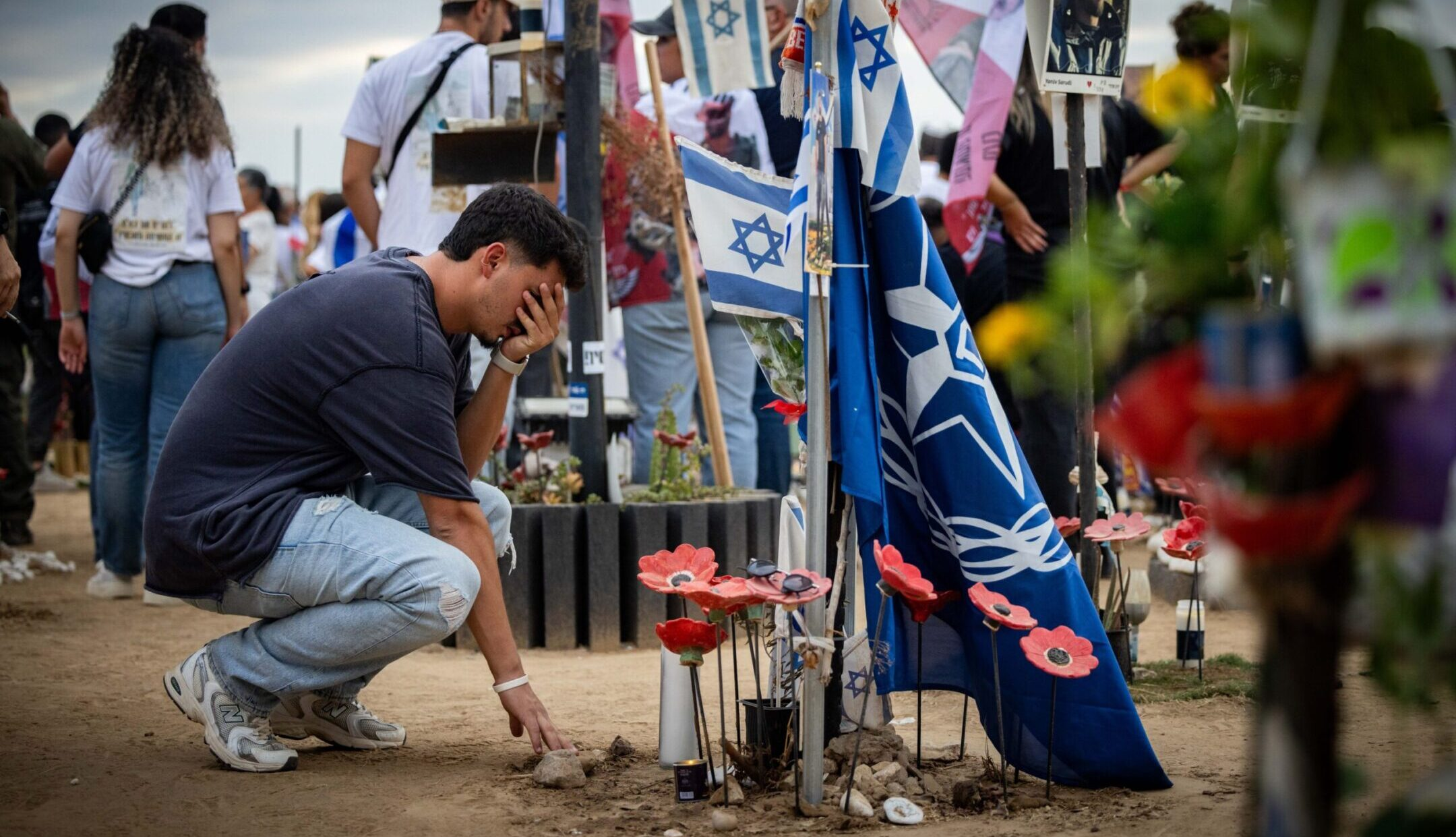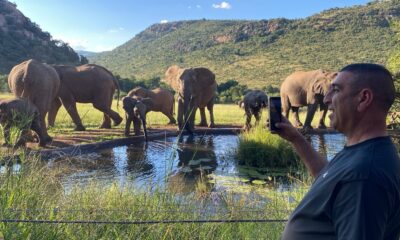
World

Nova survivor’s suicide spotlights mental health crisis
JTA – Eyal Golan sat at a table flanked by two citrus trees in his parents’ garden in the pastoral community of Porat, a makeshift office that has become, reluctantly, his command centre. Here, he has conducted dozens of media interviews about his sister, Shirel, who died by suicide at the family home on her 22nd birthday.
Shirel and her boyfriend, Adi Gilad, were among the thousands of festival goers who fled the Nova festival as Hamas terrorists began massacring revellers on 7 October 2023. Of about 4 000 attendees, 364 were killed and several dozen taken hostage to Gaza. Those who survived witnessed extreme violence, including rape and mutilation, and experienced intense trauma after waiting hours in many cases for rescue. The Golan family blames the government for not doing enough to prevent his sister’s death, which came after a battle with post-traumatic stress disorder (PTSD).
“I will do everything to be her voice and the voice of her friends who are still living,” Golan said.
Those friends, by all accounts, are still struggling more than a year after Israel’s deadliest day. While viral reports of dozens of suicides among Nova survivors are unsubstantiated, survivors, their families, and mental health advocates all say that Israel is facing a crisis when it comes to the mental health of those who made it out of Nova’s killing fields.
“There are so many who are technically still alive but who basically died on 7 October,” said a Nova survivor who asked to be referred only by his initials “GN”.
The government initially offered 12 therapy sessions for Nova survivors, later increasing it to 48 after SafeHeart, a group formed by volunteer therapists after the 7 October attack that has treated more than 3 000 survivors, lobbied, and said that even 48 sessions “falls short of what’s truly needed”.
In a statement issued after Shirel’s death, SafeHeart called for Israeli authorities to do more.
Shirel was hospitalised twice because of her PTSD symptoms. But two months before her death, she stopped leaving the house, refused to seek treatment and, in the days before, “clammed up completely”, her brother said.
Golan warned that without additional and timely mental health support, those affected by the 7 October attack risk becoming another “lost generation”. He said many family members of Nova survivors have expressed a fear of leaving their children unattended, worried they may attempt suicide.
Golan estimated that his sister’s suicide had been the 53rd in the Nova community. In a Knesset hearing in April, Nova survivor Guy Ben Shimon made similar allegations, saying that as of February, there were “almost 50 suicides among the Nova survivors”.
But the number was fiercely contested by health ministry officials at the same hearing, with Gilad Bodenheimer, the director of the ministry’s mental health division, saying they knew of “only a few cases of suicide”. The ministry also told the Haaretz newspaper that based on its records, Shirel’s death was the only confirmed case of suicide among Nova survivors to date.
“It’s in the government’s interest to keep the number of suicides quiet, it doesn’t want it to spread,” said Daniel Sharabi, a Nova survivor who saved dozens of lives at the rave by administering first aid and firing at terrorists from an abandoned tank, and has since launched a nonprofit organisation to support his fellow survivors. Sharabi said a member of a parents’ group for Nova survivors had told him there had been “tens of cases” of suicide, but said he wasn’t personally aware of any.
Efrat Atun, the chief executive of SafeHeart, said she didn’t know of more suicides apart from Shirel’s. At a hearing at the Knesset earlier this month, she censured one legislator for saying that there were more than 10 suicides in the Nova community, calling it “irresponsible”.
At the same hearing, the health and social welfare ministries warned that there were at least 30 Nova survivors deemed very high risk for suicide. More than a hundred were hospitalised in mental health institutions, the ministries said, but Atun said the number was closer to 150.
Mark Weiser, the director of the psychiatric division at Sheba Medical Center, who has researched Nova survivors, said that with about 4 000 people who attended the Nova party, it was reasonable to expect that several hundred would be significantly affected by trauma. Of those, about 5% – or roughly 200 individuals – might struggle the most, a figure that aligns with what’s typically seen in trauma survivors.
“If several of that 5% are suicidal and are doing too much alcohol and drugs because they’re having difficulty dealing with these issues, those are numbers that make sense,” he said.
Defining PTSD numbers in the general population is challenging. One study estimated that more than half a million Israelis are at risk of developing PTSD, while another put the number at 30 000.
While Weiser didn’t downplay the tremendous strain of trauma on the healthcare system, he stressed that most Israelis, including survivors themselves, overcome the trauma.
Atun rejected comparisons to 9/11, because the events in Israel were ongoing. But she said she disagreed with the idea that PTSD was decreasing over time, noting that in recent months, SafeHeart had experienced a “huge surge” in referrals, starting with the execution of six hostages – five of whom were Nova survivors – and continuing through a two-month period of 7 October-related anniversaries, yahrzeits, and memorial days.
Sharabi, whose best friend, Yosef Haim Ohana, was kidnapped at the festival and is still a hostage in Gaza, said he was inspired to set up the nonprofit called A Future for the Survivors and the Wounded, after another close friend attempted suicide.
The nonprofit, which is staffed by 70 volunteers, has supported the mental recovery of more than 700 Nova survivors with a range of mental health, economic, and social services, including trauma counselling, financial aid, community-building activities, and aiding re-entry into the workforce.
Sharabi described how many survivors’ lives had unravelled, leaving them without structure, hope, or the ability to cope with constant triggers and uncertainty about the future, a struggle which in many cases is compounded by drug use, intensifying the feelings of dissociation and despair.
“Drugs – especially psychedelics – can create a huge mess in the recovery process,” he said. “You need to be a stable and healthy person to do them.” The exception, Sharabi noted, is in a controlled clinical setting. Sharabi hopes to partner with trauma specialists to offer ketamine-assisted therapy to add to the other trauma therapies including the EMDR (eye movement desensitization and reprocessing) his group already offers.
Hundreds of survivors of the 7 October attacks, including Nova survivors, are also slated to participate in a clinical trial using MDMA (Ecstasy)-assisted psychotherapy in Weiser’s division at Sheba Medical Center.
Some survivors have chosen to shun conventional psychological treatments. Tribe of Nova, for example, has a dedicated sports department offering everything from horseback riding to basketball and ping pong.
Others prefer to seek support and grounding through spiritual avenues. At a recent retreat organised by the haredi Orthodox outreach group Kesher Yehudi, held over Simchat Torah, Osher Daniel said she gathered the most strength from her connection to G-d.
Kesher Yehudi’s founder and chief executive, Tzili Schneider, emphasises, however, that the group’s mission isn’t therapeutic. “We empathise – the whole country is traumatised on some level – we offer compassion, love, and togetherness. Nova survivors tell us often that it helps with their healing process, which is wonderful.”
Osher Daniel, too, has started her own project pairing Nova survivors with one another to commit to weekly phone calls for mutual support. “Who knows if just by simply checking in, we might prevent someone from, G-d forbid, taking their own life?”










